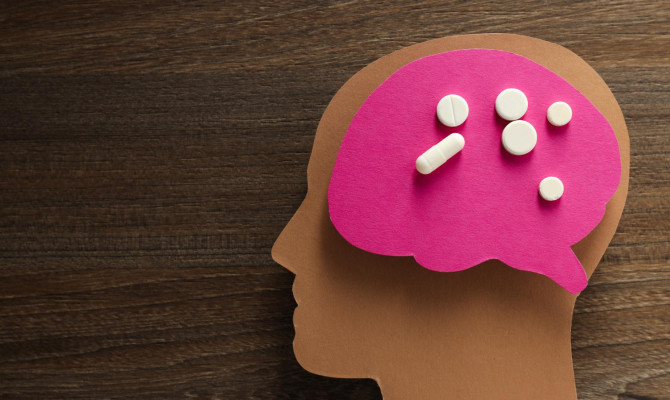Ketamine For Treating Pain: Dosage & Side Effects

- Ketamine
- 18 Oct 2023
Overview
Ketamine for Treating Pain
Ketamine treatment is the latest way to handle persistent pain. Although the previous results of the treatment are encouraging, physicians need to scrutinize many things before prescribing the therapy. Ketamine is a powerful therapy for managing pain that continues for long durations. However, doctors’ advice Ketamine treatment only when other therapies for managing pain do not work. The article will summarize Ketamine for pain, its dosage, side effects, risks, and some considerations before taking the treatment. It will also answer some popular queries that people want to know about Ketamine for pain.

Ketamine
What is Ketamine?
- Ketamine is the anesthetic drug that physicians use to cause unconsciousness. The FDA has approved the medication for only anesthetic use, but sometimes physicians use it for off-label purposes, viz, depression, anxiety. OFF-label purposes are the conditions that the FDA does not support.
- Although Ketamine is safe for cautious medical use, it can be dangerous if people use it for leisure purposes.
- The drug acts on the specific receptors viz; N-methyl- D-aspartate on the brain. The receptors function like controllers or switches.
- In the average individual, glutamate neurotransmitter (chemical messenger) turns on the brain’s N-methyl-d-aspartate (NMDA) receptor, making the individual more conscious and attentive.
- On the contrary, Ketamine is an opposing factor for NMDA receptor activation, i.e., it obstructs the glutamate in binding to the NMDA receptor. Consequently, Ketamine gets bound to the receptor, making the individual tired and less conscious 1 About Ketamine | Researched based study from National Institutes of Health .
Mechanism
How does Ketamine Work for Pain?
Researchers have identified that some Ketamine results might help in handling pain. Some of them are listed below-
- In increased quantity, Ketamine might stimulate the opioid receptors to help decrease the soreness.
- Ketamine might obstruct a few potassium and sodium channels, like other local anesthetic drugs.
- Ketamine might boost the brain’s GABA (gamma-aminobutyric acid A) quantity. GABA brings about a calming effect on the brain with decreased alertness
- Research is still going on to discover more about the advantages and the disadvantages of Ketamine treatment for persistent pain, so physicians only advise the therapy when all other drugs, viz, nonsteroidal anti-inflammatory drugs opioids, do not work 2 Mechanism of Action | Researched based study from National Institutes of Health .
Uses
Ketamine Uses
Doctors frequently use Ketamine treatment to handle the subsequent pain types-
- Type 1 Complex Regional Pain syndrome
- Neuropathic pain
Type 1 Complex regional pain syndrome
- Patients generally experience the syndrome after a trauma (injury) or surgical operation, leading to persistent soreness.
Neuropathic pain
- The nerve pain causes an increased prickly scorching (burning) sensation.
However, Ketamine treatment might not work for each individual, and it might help people only with specific pain types 2 Uses | Researched based study from National Institutes of Health .
Ketamine for chronic pain
Studies on Ketamine and chronic pain are still in their infancy, and further research is ongoing. Yet, some experts are assembling specific assessments of several studies to identify whether Ketamine can manage persistent pain. Some of them are as follows-
- A research study (2022) has found that an increased dosage of Ketamine is efficient in alleviating persistent pain. Investigators observed the patients for twelve months and found that patients with minimal pain had more extended periods of pain relief than patients with rigorous soreness 7 Uses| Researched based study from Journal of the International Association for the Study of Pain .
- Another study (2019) found that Ketamine infusions for people with chronic pain got more prolonged pain relief of around 14 days 8 Uses| Researched based study from Anesthesia & Analgesia .
- Research (2021) found that Ketamine decreased the enhanced pain sensitization in patients 9 Uses| Researched based study from Frontiers.
Ketamine for nerve pain
Research on Ketamine for nerve pain is very limited to date. The efficiency of Ketamine treatment in some research studies is listed below-
- A research study in 2013 on nerve pain associated with spinal cord injury found that Ketamine treatment is effective in treating acute phase neuropathy pain 12 Uses| Researched based study from ScienceDirect.
- A 2021 study on Ketamine efficiency on nerve pain in rat models found that prolonged Ketamine exposure gave increased pain relief than a single exposure 10 Uses| Researched based study from National Institutes of Health.
- A 2017 review study stated that certain factors of Ketamine infusions give overall good results in patients. Some of the factors are as follows-
- Increased doses of Ketamine
- Increased duration of infusion
- Providing additional medications viz; clonidine, midazolam to ease the unfavorable hallucination-like adverse effects 11 Uses| Researched based study from National Institutes of Health.
Administration
How is Ketamine for Chronic Pain Administered?
- Physicians give the drug to the patient through injections into the veins (intravenously)
- The physician starts with a minimal dose that gradually increases with time based on the patient’s need.
- People can also take Ketamine through the inhalation route, but the doctors will give the treatment options based on the patient’s pain symptoms and majority advantages 3 Administration| Researched based study from National Institutes of Health .
Dosage
Ketamine for Pain: Dosage
The dose of Ketamine will depend on the patient’s severity of the condition and medical issues. However, the most commonly used doses for persistent pain are as follows-
- Chronic pain- 0.5mg – 2mg (milligram) for one kg (kilogram) body mass
- Doctors provide the infusion at a slow rate for around 40 to 60 minutes to manage persistent pain 4 Dosage| Researched based study from National Institutes of Health .
Side Effects
Side Effects of Ketamine
Some of the adverse impacts of Ketamine treatment are listed below-
Usual side effects
- Redness in the injected site
- Visual problem
- Sleepiness
- Lightheadedness
- Nausea and vomiting
- Restlessness
- Confusion
- Appetite loss
Serious side effects
- Irregular heartbeat
- False perception of things
- Liver damage
- High blood pressure
- Low blood pressure
- Discolored stool
- Hives (urticaria)
- Skin itching
- Swelling of face, mouth, and lips
- Shortness of breath 5 Side Effects| Researched based study from National Institutes of Health .
Overdose
Ketamine Overdose Toxicity
Individuals should take Ketamine as the doctor advises. However, overdose is life-threatening as it might cause injuries and accidents due to impaired awareness.
Some of the overdose symptoms are listed below-
- High blood pressure
- Rapid heartbeat
- Difficult movement
- Body shaking
- Senselessness
- Out-of-body experience 6 Overdose| Researched based study from National Institutes of Health .
Precautions
Consideration Before Taking Ketamine Treatment
Individuals must always inform the doctor if they are suffering from any of the health issues listed below-
- Allergic to Ketamine or any other drugs
- High blood pressure
- Heart issue
- Head trauma
- Pregnancy
- Nursing (breastfeeding)
- Schizophrenia (mental disease) 13 Precautions| Researched based study from National Institutes of Health.
Risks
Ketamine Treatment Risks
Ketamine treatment is pretty safe for most individuals when used in minimal amounts. However, the adverse effect of the therapy increases when used recurrently or in high doses. Also, Ketamine interacts with certain drugs, viz; clarithromycin, so one must always consult the doctor for ongoing medications before taking up the treatment.
Although rare, Ketamine might also cause mental issues, so one must always follow the advised doses of the physician. Lastly, Ketamine also causes some people to get restless and nervous post-drug infusion.
Some other risks of Ketamine treatment are as follows-
- Momentary increase or decrease in blood pressure
- Irregular heartbeat
- Slow breathing in case of quick infusion
- Anxiety and confusion during the healing period
- Drug dependency
- Liver damage
- Increased pressure inside the skull
- Thinking issues (in children) 14 Risks| Researched based study from National Institutes of Health.
Ketamine and addictiveness
- Ketamine falls under Schedule III non-narcotic medication.
- An individual might become dependent on the drug due to its fast pain-relieving and psychological effects.
- There is every chance a person might get into the habit of taking higher doses of Ketamine, like any other addictive substance, to get the same mental effects.
- So, speaking to the doctor is vital if anyone gets engaged in unsuitable medication for accurate, on-time treatment and psychotherapy 17 Risks| Researched based study from National Institutes of Health.
Interactions
Drug Interactions with Ketamine
Ketamine might interact with several drugs. Some of them are listed below-
- Antidepressant medication
- Antihypertensive medication
- Anti-seizure medication
- Analgesics (Pain medications)
- Other anesthetic drug viz, propofol
- Asthma medication viz; Aminophylline, Theophylline
- Antipsychotic medication viz; Phenothiazines 16 Interactions| Researched based study from National Institutes of Health.
The above list does not contain the complete list, and the Ketamine drug might also interact with other medications not mentioned above. So, always speak to the health professional about any prescription or supplements one uses before taking up the treatment plan.
FAQs
Frequently Asked Questions About Ketamine
Q. How long does Ketamine pain relief last?
- The Ketamine pain relief might remain for several days with decreased effect with passing time. However, the treatment needs several repetitions to get the same result for a more prolonged period.
Q. How long does ketamine infusion last for pain?
- The length of the Ketamine infusion treatment depends on the pain severity and the treatment response. The doctors give the infusion slowly for 20 to 30 minutes to increase the drug’s efficiency.
Q. What patient parameters should be monitored for the patient receiving ketamine for pain or sedation?
Besides using as an anesthetic, doctors also use Ketamine for treating several health conditions such as chronic pain, anxiety and depression. However, during treatment, patients might encounter tachycardia (faster heart rate) and high blood pressure; the health team must check at specific intervals to prevent untoward incidents. The health professional does important health checkups every half an hour in the hospital. The health staff does wireless continuous patient monitoring in the Ketamine health clinic with the following things-
- Automated wrist monitors and finger cuffs – To reduce the risk of missing out on essential signs of high blood pressure and tachycardia.
- Automated electronic medical records- For fast updates on the patient’s real-time health condition to the clinician 15 FAQs| Researched based study from National Institutes of Health.
Takeaway
Ketamine For Treating Pain: Consult Professional Healthcare Provider
Ketamine is a budding therapy for managing persistent pain. Individuals willing to take the treatment must consult the healthcare provider about medication and associated health ailments. However, individuals must always take follow–up. Ketamine therapy from an experienced professional to avert unwanted complexities.
Any feedback on this article?
 This Articles content was accurate
This Articles content was accurate Very Informative Article
Very Informative Article I have a question or a comment
I have a question or a comment
 This article contains inaccurate content
This article contains inaccurate content This article was not helpful
This article was not helpful I have a question or a comment
I have a question or a comment
We appreciate your helpful feedback!
Checkout our social pages
References
-
National Institutes of Health
About Ketamine
-
National Institutes of Health
Mechanism of Action | Uses
-
National Institutes of Health
Administration
-
National Institutes of Health
Dosage
-
National Institutes of Health
Side effects
-
National Institutes of Health
Overdose
-
The Journal of the International Association for the Study of Pain
Uses
-
Anesthesia & Analgesia
Uses
-
Frontiers
Uses
-
National Institutes of Health
Uses
-
National Institutes of Health
Uses
-
ScienceDirect
Uses
-
National Institutes of Health
Precautions
-
National Institutes of Health
Risks
-
National Institutes of Health
FAQs
-
National Institutes of Health
Interactions
-
National Institutes of Health
Risks





































